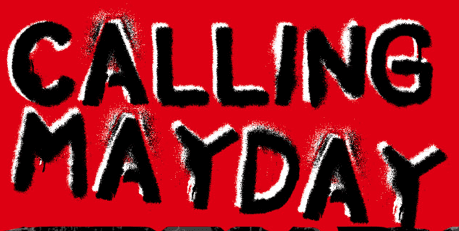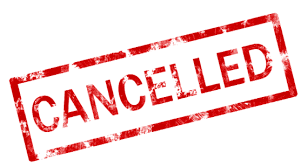 Is there such a thing? A “Minor” Mayday. [tweet this] A crew operating in an IDLH environment suddenly find themselves in a tough spot because _____ (you insert the reason). The crew leader’s situational awareness is, at least at that moment, strong as he or she immediately realizes the potential gravity of the situation and calls a Mayday. Command acknowledges the Mayday and the rapid intervention team (RIT) is called into action. But before the RIT fully deploys, something unexpected happens.
Is there such a thing? A “Minor” Mayday. [tweet this] A crew operating in an IDLH environment suddenly find themselves in a tough spot because _____ (you insert the reason). The crew leader’s situational awareness is, at least at that moment, strong as he or she immediately realizes the potential gravity of the situation and calls a Mayday. Command acknowledges the Mayday and the rapid intervention team (RIT) is called into action. But before the RIT fully deploys, something unexpected happens.
The Mayday is cancelled by the crew that called it. The cancellation is followed with “We’re OK. Disregard the Mayday.” The RIT stands down and everything returns to normal. The officer who called the Mayday feels embarrassed because the situation so quickly rectified and what appeared to be an issue of significant potential consequence turned out to be non-eventful.
How this fire department handles the debriefing, assuming they even hold one, is of vital importance to the self-esteem of the person who called the Mayday and to the confidence others may someday have to call a Mayday when they find themselves in a tight spot.
Some critics on the department will question whether the event even qualified as a Mayday. Other critics will qu estion whether the member overreacted by calling the Mayday in the first place. Some may even call into question the department’s training practices and how the training on Mayday operations has resulted in firefighters being over zealous to call Maydays unnecessarily. (On a side note… I cannot tell you why, but some firefighters look for fault and blame like they’re going to get a reward when they find it.)
estion whether the member overreacted by calling the Mayday in the first place. Some may even call into question the department’s training practices and how the training on Mayday operations has resulted in firefighters being over zealous to call Maydays unnecessarily. (On a side note… I cannot tell you why, but some firefighters look for fault and blame like they’re going to get a reward when they find it.)
The firefighter who transmitted the Mayday made the right call. If a crew feels their well being is in jeopardy, a quick assessment and a rapid Mayday transmission ensures the activation of help, hopefully through an adequately staffed and adequately trained rapid intervention team. The reason for the Mayday should be explored through a post incident evaluation and the entire organization should benefit from the lessons.
Some time ago I had an opportunity to talk with a fire chief who had a firefighter fall through a floor and called a Mayday. The firefighter was quickly located by other firefighters who were working in the basement and he was taken outside. His injuries were very minor and the chief downplayed the event as a non-event, almost appearing embarrassed that his department had a Mayday called in the first place. Further inquiry revealed little was done to extract and share the lessons from the event and it seemed as though the firefighter who called the Mayday was admonished for being on the spongy floor and falling through in the first place.
Chief Gasaway’s Advice
 Getting a firefighter beyond the fear and embarrassment of calling a Mayday is a significant hurdle that departments must acknowledge and overcome. [tweet this] This problem can be compounded when firefighters convince themselves the problem isn’t that bad and they can work through it without having to call a Mayday. If the problem continues to worsen (and sometimes it worsens quickly) the situation may rapidly escalate to the point where the rapid intervention team’s success will be challenged. Once the window of survive-ability closes (something I talk about during every Mental Management of Emergencies program), no amount of resources are going to be able to change the outcome and there will be a firefighter fatality.
Getting a firefighter beyond the fear and embarrassment of calling a Mayday is a significant hurdle that departments must acknowledge and overcome. [tweet this] This problem can be compounded when firefighters convince themselves the problem isn’t that bad and they can work through it without having to call a Mayday. If the problem continues to worsen (and sometimes it worsens quickly) the situation may rapidly escalate to the point where the rapid intervention team’s success will be challenged. Once the window of survive-ability closes (something I talk about during every Mental Management of Emergencies program), no amount of resources are going to be able to change the outcome and there will be a firefighter fatality.
It is very important for departments to:
- Develop a comprehensive Mayday and rapid intervention policy.
- Train all firefighters, officers and commanders on how and when to call a Mayday and what everyone’s role will be during a Mayday.
- Practice calling Maydays over the radio, preferably while having the firefighters in a simulated high-stress situation.
- Discuss scenarios where Maydays would be appropriate and how much time a firefighter should let pass before calling a Mayday.
- Discuss how fellow firefighters should react to a “Minor” Mayday that resolves quickly (Hint: With praise and acknowledgement for the right decision made).
Action Items
 Does your department have a comprehensive Mayday and rapid intervention policy?
Does your department have a comprehensive Mayday and rapid intervention policy?- Are your members well-trained and well-practiced for what to do during a Mayday?
- Have you ever had a “Minor” Mayday? And if so, how did the members not directly involved in it react?
- Have you ever had a scenario where a Mayday should have been called but, for whatever reason, was not called or was delayed?
_____________________________________________________________
The mission of Situational Awareness Matters is simple: Help first responders see the bad things coming… in time to change the outcome.
Safety begins with SA!
_____________________________________________________________
Share your comments on this article in the “Leave a Reply” box below. If you want to send me incident pictures, videos or have an idea you’d like me to research and write about, contact me. I really enjoy getting feedback and supportive messages from fellow first responders. It gives me the energy to work harder for you.
Thanks,

Email: Support@RichGasaway.com
Phone: 612-548-4424
Facebook Fan Page: www.facebook.com/SAMatters
Twitter: @SAMatters
LinkedIn: Rich Gasaway
YouTube: SAMattersTV
iTunes: SAMatters Radio


A mayday is a mayday. Just like all incidents, at the time, are an emergency to the person that called it no matter how minor it may seem to the crew that responds. We just conducted mayday drills with different situations (floor collapse, overhead collapse, and becoming “trapped” and disoriented in a small room).
We would emphasize to the crews that as soon as they realized they were in trouble, call the mayday then work on getting out. There is no shame or embarrassment in calling for help. After the firefighters realized they were in a mayday situation, they would call IC. The IC would activate RIT. RIT acknowledged the IC. The IC would recontact the mayday firefighter(s).
After a minute or so, the mayday would be cancelled, RIT stepped back down to the on-deck position and the drill would continue to the next station or the next person in line. We just wanted to make sure that crews knew to call immediately, not to wait for the low air alarm to go off or get in a worse situation where they couldn’t reach their radio to call for help.
The drills went well. But, of course, who knows what will happen (let’s pray we never find out) with the real deal.
James Newman
District Chief 604-A
St. George Fire Protection District
14141 Airline Hwy. Bldg. 1 Suite H
Baton Rouge, La. 70817
jgnewman@stgeorgefire.com
http://www.stgeorgefire.com
http://www.sgpfa.org
James,
Great strategy. Creating a drill around a “Minor” Mayday and practicing the act of calling it, then canceling it. That type of leadership in training is to be commended. You’re doing things right! Thank you for sharing this best practice that will help others. Kudos to St. George Fire!
~ Rich
Rich,
This is not an easy one to answer. My theory is if you think you are in trouble then you are, call the Mayday. If you can self extricate quickly then don’t. I feel that if we call to quickly then it’s like “calling wolf” and eventually people won’t take it as serious as they should. A example of this in our department is the PASS alarm. They go off so frequently that when you hear one go off. Your first thought is to tell someone to turn that off or it gets ignored until it registers in your brain that, “Hey, that thing is not be reset.”
Before I retired we had a drop ceiling fall on us. Myself and another firefighter got tangled in the wires. We both carried wire cutters and self extricated within seconds. We didn’t call and didn’t need to alarm anybody. If we didn’t have the cutters then yes I would have called.
As I said there is no easy answer. I also think a Mayday is a Mayday. They are not minor or major, but I understand what your saying. I guess it is the degree of entrapment or inability to get out safely.
Thanks for the post.
Larry,
Great points. Hopefully there aren’t enough occasions of Maydays being called that it starts to become the “crying wolf” syndrome. If that’s the case, there may be a deeper systemic safety issue where firefighters are working in situations they should not be in. Thanks for sharing!
~ Rich